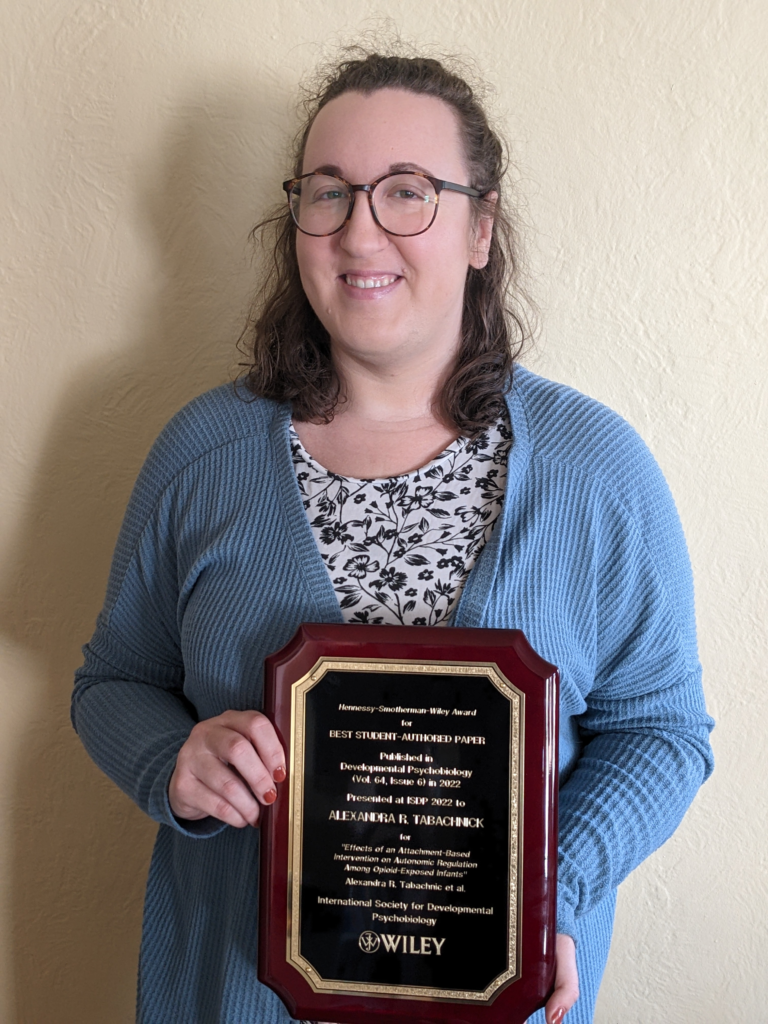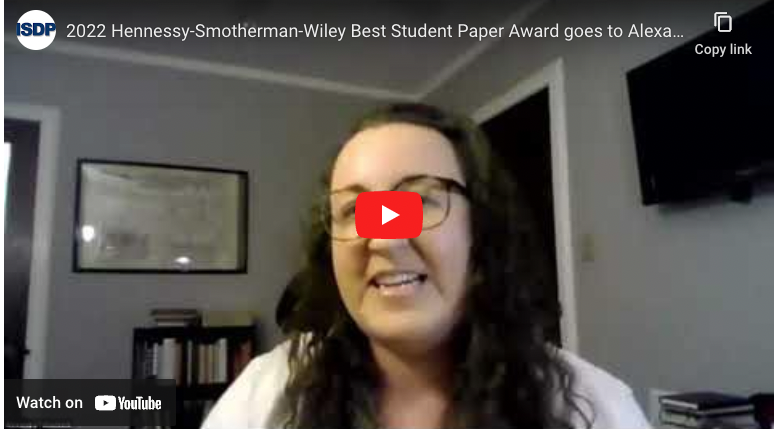“Effects of an Attachment-Based Intervention on Autonomic Regulation Among Opioid-Exposed Infants.”
Developmental PsychobiologyVolume 64, Issue 6 OPEN ACCESS
First published: 02 June 2022
T32 Postdoctoral Fellow
University of Illinois at Chicago, Chicago USA

Abstract
Little is known about whether postnatal intervention enhances autonomic regulation among infants at risk for dysregulation due to prenatal opioid exposure. The present study evaluated the effects of modified Attachment Behavioral Catch-up (mABC) on autonomic regulation for opioid-exposed infants in a pilot randomized clinical trial. We hypothesized that, compared to a control intervention (modified Developmental Education for Families [mDEF]), mABC would be associated with higher resting respiratory sinus arrhythmia (RSA) and pre-ejection period (PEP) as well as greater reactivity to and recovery from a social stressor (Still-Face Paradigm). Pregnant or peripartum women receiving opioid agonist therapy (61 mothers of 64 infants; final N = 36 infants) were randomly assigned to mABC or mDEF, 12-session home visiting programs beginning in the third trimester; mABC targets sensitive parenting, and mDEF targets cognitive and motor development. mABC was associated with significantly greater RSA reactivity and marginally greater PEP reactivity. In models accommodating missing data, mABC was additionally associated with significantly greater RSA recovery. In sensitivity analyses removing siblings, mABC predicted significantly enhanced PEP reactivity. Overall, in these preliminary analyses, mABC was associated with healthier autonomic regulation during a social stressor than mDEF. Thus, mABC may be a promising strategy to promote autonomic regulation among opioid-exposed infants through parenting intervention.

